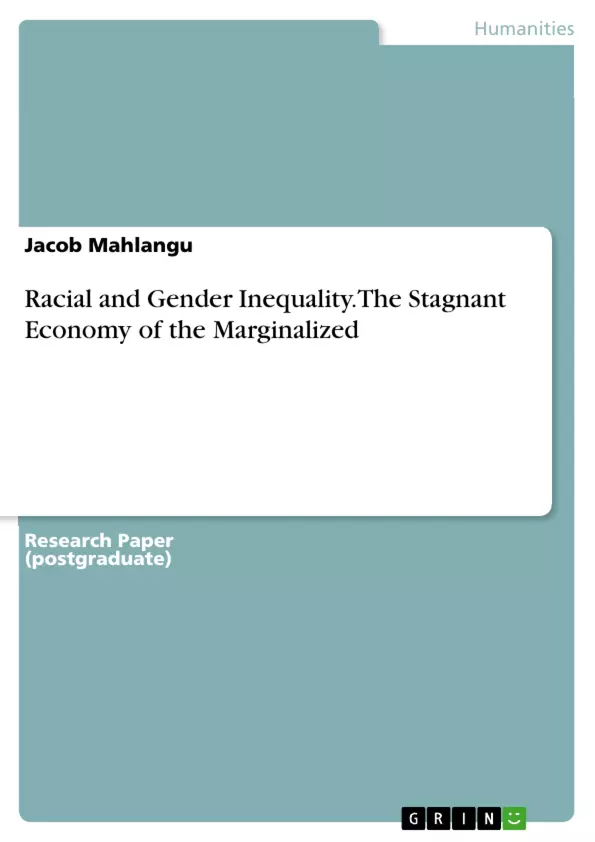The racial and Gender inequality that continues to exist post the colonial era. The majority of blacks and women in developing
countries are facing a Stagnant Economy. They are mostly found in the informal sector selling products at Central Business
Districts. They lack employment and access to financial institutions that could empower them economically. With colonialism
gone it reintroduces itself in the form of neo-colonialism. Developed countries still exploit the resources of developing countries
while offering the natural inhabitants cheap labour. Utilizing the theoretical frameworks of post colonialism and feminism the
paper seeks to highlight the factors that hinder the Sustainable Development Goal of global equality.
Table of Contents
- Introduction
- Theoretical frameworks
- Postcolonial Theory
- Feminist Theory
- Research Aims and Objectives
- Research Design
- Literature Review
- Discussion of the Literature Review
- Ethical Considerations
- Delimitations
Objectives and Key Themes
This research endeavor aims to analyze the persisting economic disparities and challenges faced by marginalized communities in developing countries in the post-colonial era. It investigates the complex interplay of colonialism, race, gender, and economic structures that contribute to the stagnation of their economies.
- The lasting impact of colonialism and its influence on the economic development of developing countries
- The role of race and gender in shaping economic opportunities and inequalities
- The challenges faced by marginalized communities in accessing financial resources and achieving economic empowerment
- The impact of neocolonialism and the continued influence of developed countries on the economies of developing nations
- The need for social justice and redistribution of resources to address the remnants of colonialism
Chapter Summaries
The first chapter provides a comprehensive overview of the research's theoretical frameworks, namely postcolonialism and feminism. It delves into the historical context of colonialism, its enduring effects on developing countries, and how these theories are employed to understand the current economic realities of marginalized communities. The second chapter outlines the research aims and objectives, including the specific research questions that guide the study. It clarifies the scope and focus of the research, setting the stage for the subsequent chapters.
Keywords
The main keywords and focus topics of the text include postcolonialism, feminism, racial inequality, gender inequality, economic marginalization, developing countries, neocolonialism, social justice, redistribution of resources, and the enduring legacies of colonialism.
- Quote paper
- Jacob Mahlangu (Author), 2023, Racial and Gender Inequality. The Stagnant Economy of the Marginalized, Munich, GRIN Verlag, https://www.hausarbeiten.de/document/1466239


